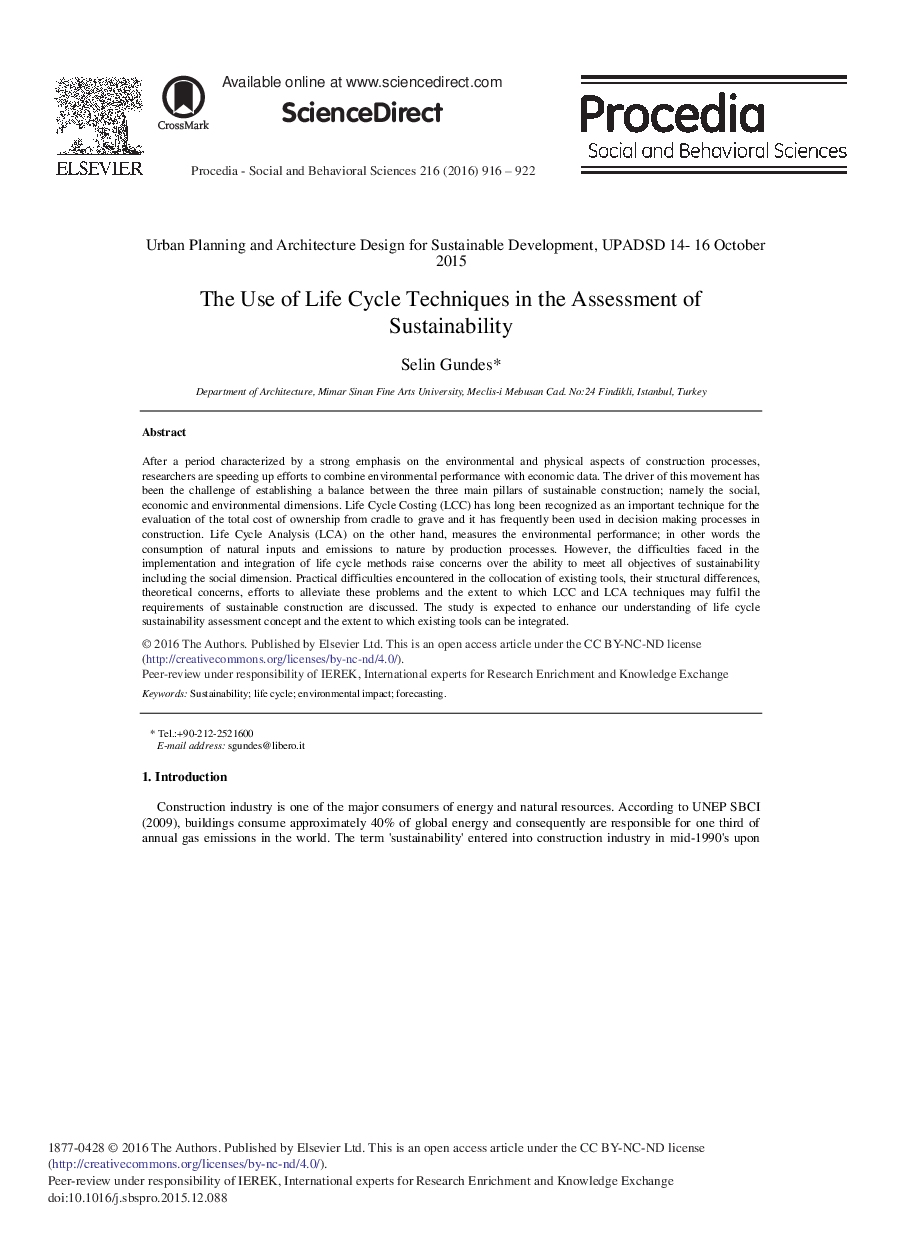| Article ID | Journal | Published Year | Pages | File Type |
|---|---|---|---|---|
| 1108795 | Procedia - Social and Behavioral Sciences | 2016 | 7 Pages |
After a period characterized by a strong emphasis on the environmental and physical aspects of construction processes, researchers are speeding up efforts to combine environmental performance with economic data. The driver of this movement has been the challenge of establishing a balance between the three main pillars of sustainable construction; namely the social, economic and environmental dimensions. Life Cycle Costing (LCC) has long been recognized as an important technique for the evaluation of the total cost of ownership from cradle to grave and it has frequently been used in decision making processes in construction. Life Cycle Analysis (LCA) on the other hand, measures the environmental performance; in other words the consumption of natural inputs and emissions to nature by production processes. However, the difficulties faced in the implementation and integration of life cycle methods raise concerns over the ability to meet all objectives of sustainability including the social dimension. Practical difficulties encountered in the collocation of existing tools, their structural differences, theoretical concerns, efforts to alleviate these problems and the extent to which LCC and LCA techniques may fulfil the requirements of sustainable construction are discussed. The study is expected to enhance our understanding of life cycle sustainability assessment concept and the extent to which existing tools can be integrated.
